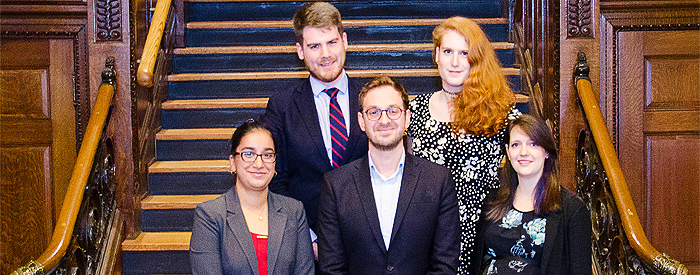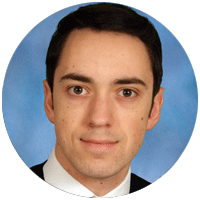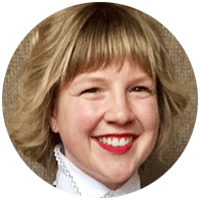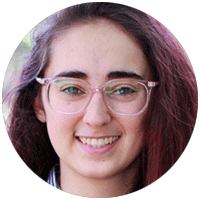
Over the last 10 years, one in five Supreme Court clerks has been a recent graduate of the Faculty. In keeping with tradition, there will be a strong McGill Law representation within the next cohort of Supreme Court clerks: eight of our graduating students or recent grads were tapped to clerk at the country’s highest tribunal. Focus online asked them a few questions to get to know them better.
Florence Ashley (Justice Martin)
I’m a professional token trans person. Born in Laval—though I try to forget this traumatic period of my life—I went through Cégep St-Laurent before heading to McGill. After graduating, I enrolled in the master’s program, with specialization in bioethics. A classic queer and trans overachiever, I’ve taken part in way too many student clubs and advocacy organizations. Nowadays, I remain a proud member of the Comité trans of the Conseil québécois LGBT, as well as chair of the Advisory Board of the Trans Legal Clinic at McGill. Most recently, I’ve had the immense chance of being lead article in the first special issue on trans law in Canadian history, with this year’s University of Toronto Law Journal’s issue titled “Transfiguring Justice: Trans People and the Law,” a gloriously punny title if I may say so myself.
Why did you apply?
As someone who’s interested in academia and pressing all the buttons of the academic world to see what they do, I’ve always longed for grounding. I’ve done that through my communal relationships. I’ve done that through volunteering. Applying for the Supreme Court of Canada was, in my eyes, the next step in keeping my academic inner life grounded in the complex realities of both judicial decision-making and everyday life as a subject of the law. Nowhere do those two meet more clearly than at the Supreme Court of Canada, where the immediate case gets enmeshed into an infinite web of social relations, with the impact of decisions being felt resonating through the country. To take part in that process is an unspeakable honour, especially as what may be the first openly trans clerk—following in the footsteps of the first genderqueer clerk, the amazing Cee Strauss, also an of the Trans Legal Clinic.
How did you find out you had been chosen?
I had just come out of the shower after having spent the evening staring agape at massive dinosaur skeletons in the Natural History Museum in Ottawa, when the phone started to ring on the chair. My heart skipped a beat when I saw it was a blocked number—I had heard that they usually call from a blocked number but it couldn’t be, right? After all, it had only been what, four hours since my interview? But indeed it was! The Honourable Sheilah Martin, offering me a position in her chambers. After making sure I wasn’t just hallucinating from the Greyhound lag—totally a real thing—I enthusiastically accepted the position. Immediately after, I called my partner to tell them. I then proceeded to aggressively message everyone online on Facebook chat in order to relay them the news.
Patrick Baud (Justice Karakatsanis)
I was born and raised in Kingston, Ontario. I studied politics at Victoria College, which is part of the University of Toronto, where I was a Bank of Montreal National scholar and a C.D. Howe Memorial Foundation scholar. I continued my studies in politics at Queen’s University. During my undergraduate studies, I spent two summers at the federal Treasury Board Secretariat, and during law school, I have worked in the office of Parliamentary Budget Officer and helped set up Ontario’s office of the Financial Accountability Officer. As part of my studies at McGill, I served as clerk to the Honourable Mr. Justice Daniel W. Payette at the Superior Court of Québec. Starting this summer, I will serve as law clerk to the Honourable Madam Justice Mary J.L. Gleason, who is a judge on the Federal Court of Appeal and also sits on the Court Martial Appeal Court.
Pourquoi avez-vous postulé ?
J’ai postulé pour plusieurs raisons. Je suis passionné par le genre de débats qui émergent des questions de droit débattues devant la Cour. Je veux mieux connaître comment ces dossiers d’importance nationale sont plaidés. Je veux également davantage comprendre la perception que la Cour a de son rôle relativement à ceux que jouent l’exécutif et le Parlement, ainsi que les tribunaux inférieurs. Et finalement, j’ai voulu avoir la possibilité de poursuivre le développement de mes capacités juridiques en œuvrant auprès des juges de la Cour, ainsi que des autres auxiliaires et du personnel de la Cour.
How did you find out you had been chosen?
I was having tea with a friend of mine when I got the call from Justice Karakatsanis just after 4 pm the day after my interviews. I stepped outside the café and answered. Justice Karakatsanis graciously offered me a position and I did my best not to babble my way through accepting.
Quels sont les domaines du droit qui vous intéressent le plus ?
Jusqu’à présent, j’ai surtout travaillé dans les domaines du droit administratif et constitutionnel, de l’interprétation des lois et de la procédure parlementaire. J’imagine que je continuerai à le faire dans l’avenir. Cela dit, j’ai hâte de me pencher davantage sur d’autres domaines, surtout le droit des relations entre la Couronne et les peuples autochtones, le droit criminel, le droit privé et le droit fiscal.
Laura Cárdenas (Justice Martin)
I am originally from Montreal and was raised in Canada, the United States, Venezuela, and Peru. I completed a Bachelor’s in Fine Arts (Film Studies) and a Master’s in Asia Pacific Policy Studies before undertaking my legal studies at McGill. During my time at McGill, I worked as a Research Assistant for multiple professors, participated in multiple Faculty committees, and served as Editor-in-Chief of the McGill Law Journal.
Why did you apply?
I am interested in the way judicial processes function and shape our society. Articling at the Supreme Court strikes me as a unique opportunity to understand the considerations that go into the most influential judicial decisions in Canada. I also think a clerkship is the best complement to the academic education I have received at McGill and the practical experience I will gain while articling with DLA Piper in Montreal next winter.
How did you find out you had been chosen?
I was home waiting for my partner and son to return from daycare when I received a call from a Calgary number. It was Justice Martin, who offered me the position. After our conversation, I ran towards the daycare to share the news with my family right away—if you consider that I was eight months pregnant at the time, you’ll realize how unbelievably excited I must have been to manage running down the block.
What areas of the law interest you the most?
My interests lie at the intersection of succession, family, and property Law. I am most interested in questioning the conceptions and boundaries of the family as determined by the state and courts, from the lens of private and comparative law. Besides these specific interests, I also remain a generalist and I am looking forward to working in diverse legal fields.
Sajeda Hedaraly (Justice Gascon)
I graduated from McGill Law in December 2017, after having previously completed a Bachelor of Arts & Science with a major in cell/molecular biology. During my legal studies, I volunteered at the Caregivers’ Association of Québec (AAFQ) and at the Legal Information Clinic. I was also an editor for the McGill Law Journal, completed a clerkship at the Québec Superior Court, and participated to the Harold G. Fox Moot in Intellectual Property. I also worked as a summer student in McCarthy Tétrault’s Montreal office and as a research assistant for Professor Johanne Poirier. I am currently attending Québec Bar School, and will clerk at the Court of Appeal for Ontario next year.
Why did you apply for a clerkship?
A clerkship at the Supreme Court is an invaluable opportunity for a young jurist to deepen their knowledge of the judicial process in Canada and to work on complex legal questions that affect society. I saw a clerkship at the SCC as a meaningful way to contribute to Canadian law and to engage with challenging issues. It is also a wonderful place to meet other curious minds from across the country!
How did you find out you had been chosen?
I was on the bus at the end of the day, one stop away from home. My phone rang, and my caller ID showed “SCC CSC”! It was Justice Gascon’s assistant, who asked me if I was available to chat with him. Ce fut le transfert d’appel le plus long de ma vie !
What areas of the law interest you the most?
I am interested in everything I encounter! I thus look forward to the variety of areas and questions that recent graduates can come across during their clerkships. I also have specific interests in health law, Aboriginal law, and constitutional law, which I was able to explore through various opportunities during law school.
Étienne F. Lacombe (Chief Justice Wagner)
 I am originally from Toronto and I completed my undergraduate studies in criminology and political science at UofT. Throughout law school, I worked with inmates alleging wrongful convictions as a member of McGill’s Innocence Project and volunteered with low-income service users at a community legal clinic in Montreal. I was a senior French-language editor of the McGill Law Journal, and my own published research touches on federalism, Aboriginal self-governance and youth justice. I will be clerking at the Court of Appeal for Ontario before heading to Ottawa next year.
I am originally from Toronto and I completed my undergraduate studies in criminology and political science at UofT. Throughout law school, I worked with inmates alleging wrongful convictions as a member of McGill’s Innocence Project and volunteered with low-income service users at a community legal clinic in Montreal. I was a senior French-language editor of the McGill Law Journal, and my own published research touches on federalism, Aboriginal self-governance and youth justice. I will be clerking at the Court of Appeal for Ontario before heading to Ottawa next year.
Pourquoi avez-vous postulé ?
Je ne peux imaginer une pareille occasion de travailler étroitement avec des collègues passionnés et un mentor exceptionnel. L’équilibre entre les causes concrètes et le travail de nature théorique me plaît particulièrement. Sur le plan personnel, j’espère y trouver une occasion supplémentaire de vivre mon identité bilingue.
How did you find out you had been chosen?
It was as straightforward as it gets. I was sitting at my desk when I picked up the phone and heard the Chief Justice’s voice.
Quels sont les domaines du droit qui vous intéressent le plus ?
Je m’intéresse surtout aux divers aspects du droit pénal. Mon expérience au sein d’une clinique d’aide juridique dans le Grand Nord et au bureau du ministère public au centre-ville de Toronto m’a permis d’explorer les questions tant pratiques que théoriques qui se posent dans ce domaine très humain du droit.
Emma Loignon-Giroux (Justice Côté)
 Je suis franco-ontarienne originaire d’Ottawa, où j’ai complété mon baccalauréat avant d’arriver à McGill. À McGill, j’ai entre autres été rédactrice en chef adjointe de la Revue de droit de McGill, contributrice au journal facultaire, assistante de recherche pour le Centre des politiques en propriété intellectuelle ainsi que membre d’équipes sportives intra-muros. Après mon passage à McGill, je suis rentrée à Ottawa où je travaille à titre d’auxiliaire juridique à la Cour d’appel fédérale. J’ai été assermentée au Barreau du Québec en mars dernier et serai assermentée au Barreau de l’Ontario en juin.
Je suis franco-ontarienne originaire d’Ottawa, où j’ai complété mon baccalauréat avant d’arriver à McGill. À McGill, j’ai entre autres été rédactrice en chef adjointe de la Revue de droit de McGill, contributrice au journal facultaire, assistante de recherche pour le Centre des politiques en propriété intellectuelle ainsi que membre d’équipes sportives intra-muros. Après mon passage à McGill, je suis rentrée à Ottawa où je travaille à titre d’auxiliaire juridique à la Cour d’appel fédérale. J’ai été assermentée au Barreau du Québec en mars dernier et serai assermentée au Barreau de l’Ontario en juin.
Pourquoi avez-vous postulé ?
Mon expérience jusqu’à présent à la Cour d’appel fédérale m’a ouvert les yeux à toutes sortes d’enjeux concernant l’art de juger, et j’ai voulu continuer à explorer ceux-ci. Le thème de l’interaction entre les pouvoirs exécutif et judiciaire — tributaire notamment du droit administratif — a été particulièrement marquant pour moi cette année, et je suis curieuse de constater les manifestations de telles questions à la Cour suprême. Les préoccupations qui entourent la prise d’une décision à la Cour suprême ne sont pas forcément les mêmes que celles qui pèsent sur une cour d’appel et j’ai hâte de voir comment ces paramètres sont négociés par la Cour. En plus, je trouve ça génial de passer une année avec 36 juristes venant de partout au pays, dont mes collègues de McGill !
Comment avez-vous appris que vous avez été sélectionnée ?
La semaine avait été chargée de bonnes nouvelles pour mes collègues à la Cour — l’un d’eux a décoché une bourse pour sa maîtrise et une autre avait plus tôt reçu un appel bien similaire à celui que j’étais sur le point de recevoir. Nous étions donc ensemble après le travail afin de célébrer ces nouvelles lorsque mon téléphone a sonné. L’écran affichait un numéro masqué et j’ai d’abord cru que c’était ma mère qui appelait ! Lorsque j’ai répondu, la juge Côté a annoncé de qui il s’agissait, et ma voix a dû changer de ton assez subitement puisqu’elle m’a demandé si tout allait bien. M’étant remise de ma surprise, elle m’a offert de travailler au sein de son cabinet en 2019, à quoi j’ai répondu sans hésiter, « oui, bien sûr » !
David Matyas (Justice Abella)
I grew up in Ottawa. I completed a BASc at McMaster University and an MPhil in Development Studies at the University of Oxford. Before coming to law school, I worked in international development based in the UK and West Africa. While at McGill, I’ve acted as a Research Assistant for Professor Payam Akhavan, completed an internship at Maliiganik Legal Services in Nunavut and was a student clerk for Justice Yves-Marie Morissette at the Québec Court of Appeal.
Why did you apply?
I began my studies at McGill hoping law would provide me with new tools with which to approach natural disasters, the field in which I spent my first professional years. During my studies, I realized that law provides a distilled version of what I loved most about disaster studies: the opportunity to engage deeply with complex puzzles steeped in public interest. I was drawn to clerking as a means of being immersed in some of Canada’s most pressing legal puzzles and as a forum to learn from some of the country’s keenest “puzzle masters.”
How did you find out you had been chosen?
This year I participated in the Willem C. Vis International Commercial Arbitration Moot. I was heading to a practice round when I received a call from Justice Abella. It was a great, wonderful surprise and it left me far from focused during my pleading that day.
What areas of the law interest you the most?
My legal interests are fairly diverse. International human rights law was an early passion and throughout my time at McGill I have been increasingly drawn to other areas as well. I really enjoy private law—particularly torts and agency—I like thinking about judicial institutions—especially itinerant circuit courts—and have a soft spot for business associations—where imagining defenses against hostile takeovers lets me exercise muscles from my days working in disaster risk reduction.
Suzanne Zaccour (Justice Gascon)
 I studied at McGill from 2013 to 2016. I was involved as an editor of Contours: Voices of Women in Law and as a member of the Feminist Collective. After my BCL/LLB, I completed an LLM at the University of Toronto. I am now doing another master’s degree at the University of Cambridge, writing a dissertation on the recognition of sexual coercion in rape law. When I am not studying law, I write feminist books.
I studied at McGill from 2013 to 2016. I was involved as an editor of Contours: Voices of Women in Law and as a member of the Feminist Collective. After my BCL/LLB, I completed an LLM at the University of Toronto. I am now doing another master’s degree at the University of Cambridge, writing a dissertation on the recognition of sexual coercion in rape law. When I am not studying law, I write feminist books.
Why did you apply for a clerkship?
So many reasons! Mostly, I applied because clerking at the Supreme Court will be challenging. Grappling with complex issues from a wide array of areas of law will enable me to improve my research and writing skills while receiving feedback from some of the most accomplished jurists of our country: talk about an opportunity for growth! I am also hoping to develop a better understanding of our justice system, see how legal change takes place, and use this knowledge for my secret plans to change the world.
How did you find out you had been chosen?
I went back to England right after my interview. I was lucky to spend the most stressful hours, when my colleagues were waiting for the call, fast asleep after a night on the plane. When I woke up, I immediately reached for my phone, saw no missed call, and despaired—but then I saw an email from Justice Gascon’s office! Because of the time difference, I had to wait hours before I could return the call, confirm that I got the clerkship, and tell everyone. The whole thing felt surreal.
What areas of the law interest you the most?
I am mostly interested in criminal law and family law—but they are pretexts to my real passion, women’s rights. I have also written on law and language—specifically, the use of gendered and sexist language in legal texts.
The interviews were edited for length.
